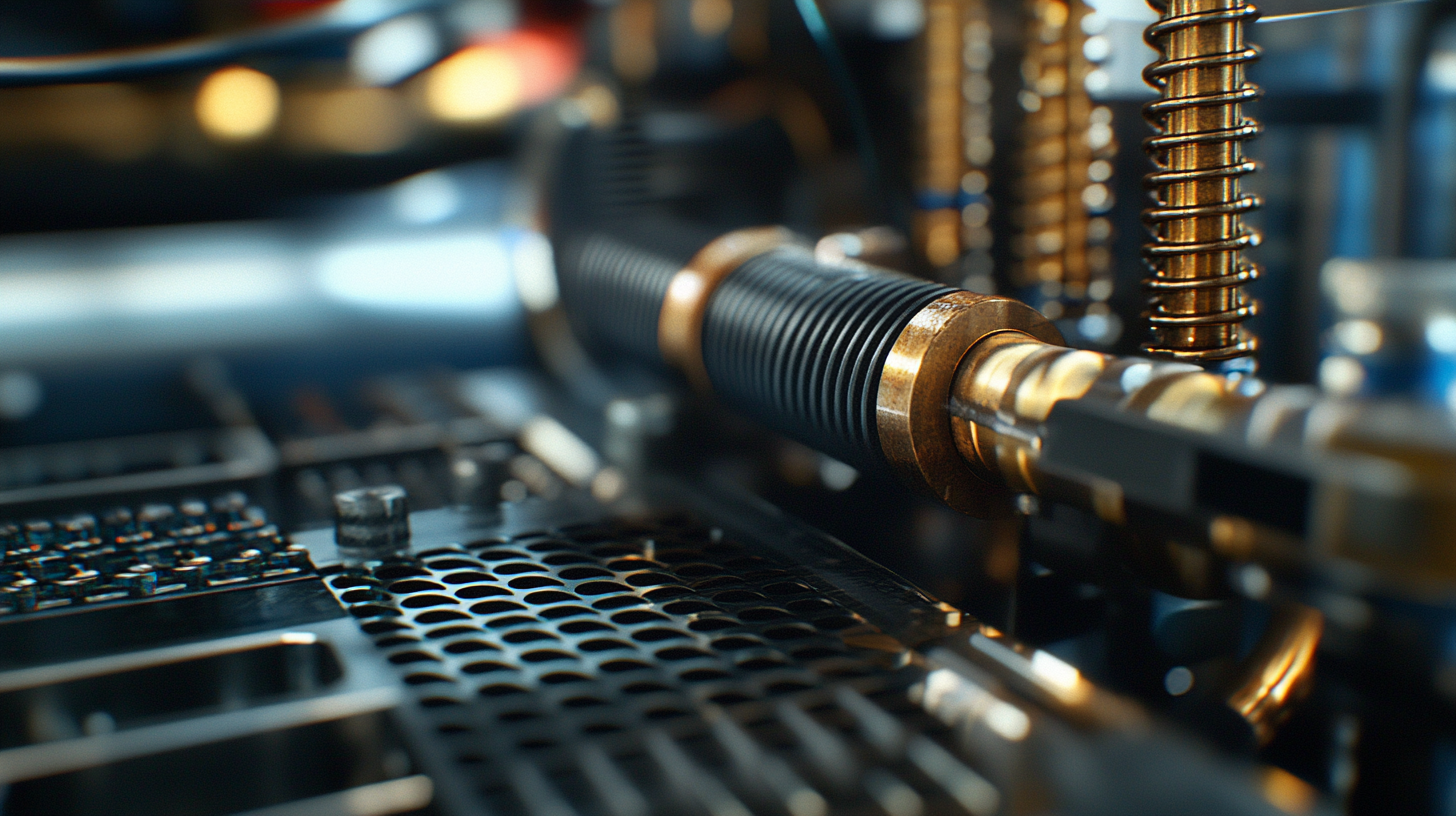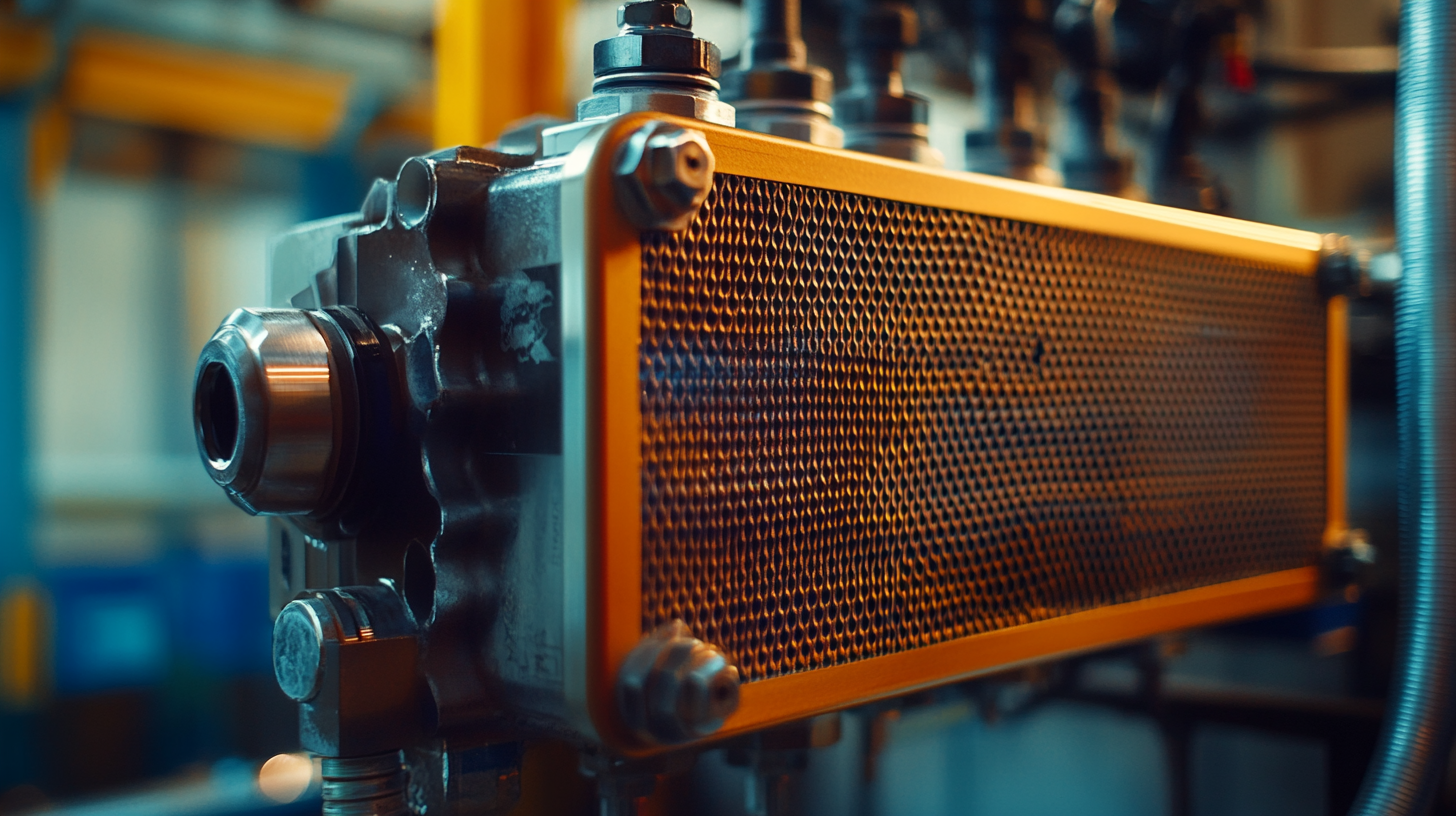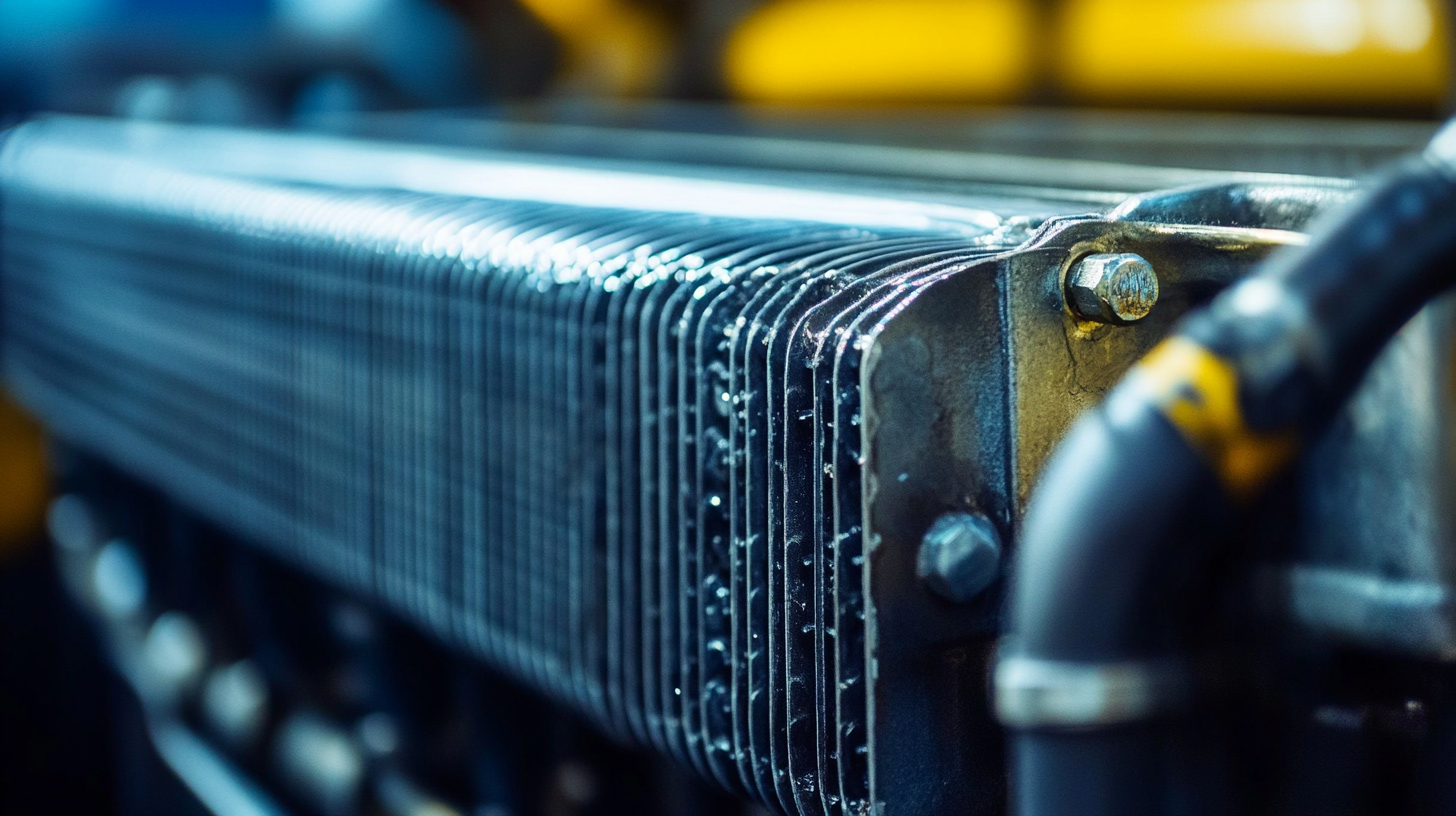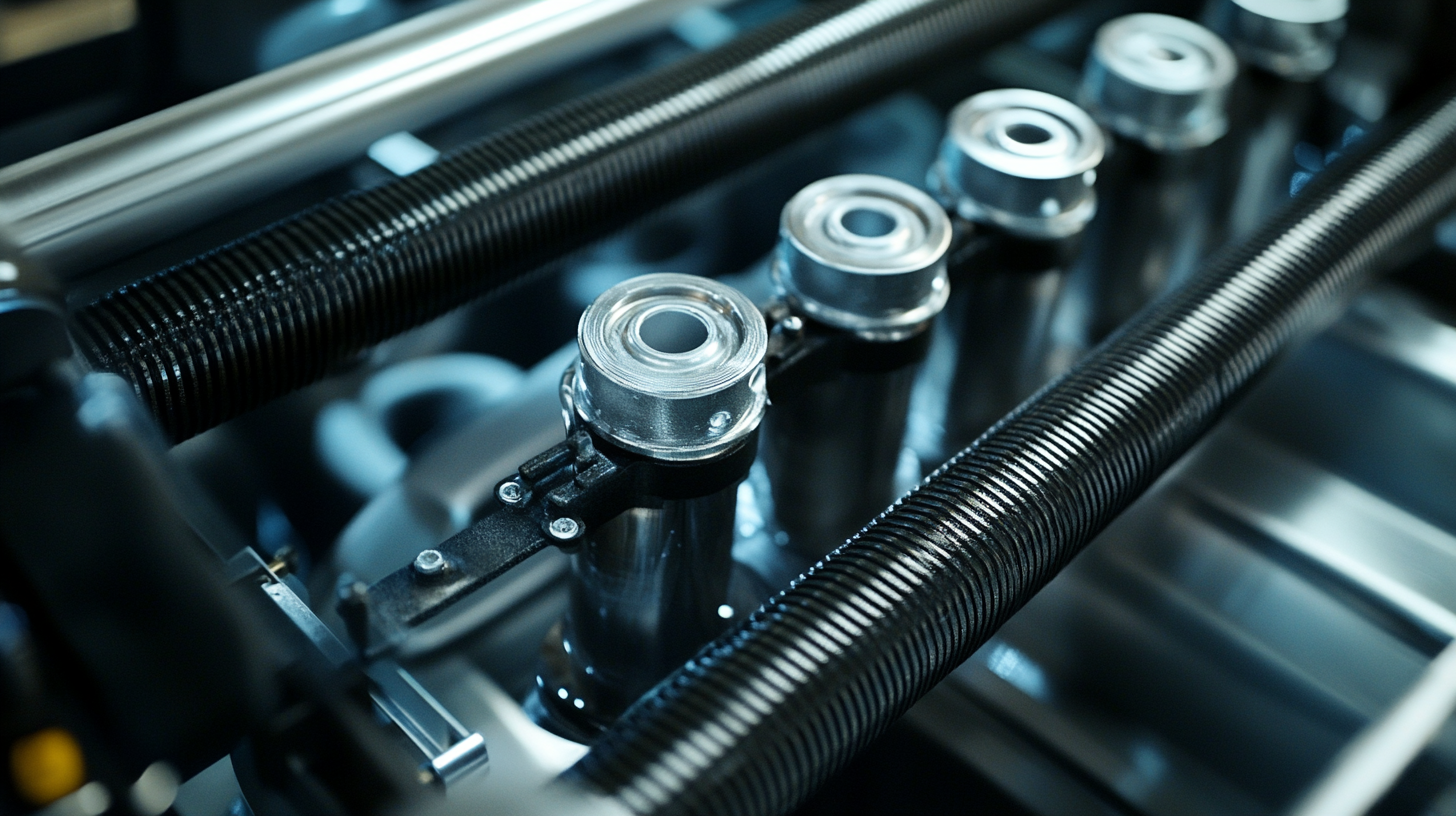Empowering Engineering Excellence: Innovate, Elevate, Deliver.
When it comes to maintaining the efficiency and longevity of hydraulic systems, selecting the right Hydraulic Oil Cooler is crucial. As hydraulic equipment operates under high pressure and temperature, it is essential to manage the heat generated during operation effectively. Using the appropriate cooler not only enhances performance but also minimizes potential system failures, ultimately leading to reduced downtime and maintenance costs. Whether you are involved in construction, manufacturing, or any industry relying on hydraulic machinery, understanding the specific requirements of your system is key to making an informed choice.
In this blog post, we will explore five essential tips to guide you in selecting the hydraulic oil cooler that best meets your operational needs. From understanding the types of coolers available to considering factors such as fluid flow rate, ambient temperature, and system compatibility, we aim to provide you with comprehensive insights. Armed with this knowledge, you can ensure that your hydraulic systems remain cool, efficient, and ready to tackle any challenge. Join us as we delve into the critical elements of choosing the right hydraulic oil cooler for your applications.

When selecting the right hydraulic oil cooler for your system, it's crucial to first understand the specific requirements of your hydraulic system. According to the International Fluid Power Society, approximately 80% of hydraulic system failures are attributed to inadequate cooling. This statistic underscores the importance of ensuring that your components operate within optimal temperature ranges to maintain efficiency and longevity. The ideal hydraulic oil cooler should be tailored to the type of fluid your system uses, as well as its operating temperature and flow rates. For instance, a report by the Hydraulic Institute emphasizes that hydraulic oils have varying thermal properties that can influence heat exchange efficiency. You should consider coolers designed for specific viscosity ranges, as operating outside of these can lead to reduced performance and increased wear on system components. Additionally, environmental and application factors play a significant role in your choice. In high-temperature applications, for instance, a robust air-cooled unit might be preferable, while a water-cooled cooler could be more efficient in controlled environments. Industry data indicates that selecting the appropriate cooler can improve energy efficiency by up to 20%, leading to significant operational cost savings over time. Understanding these requirements will help in making an informed choice, ensuring your hydraulic system operates at peak performance.

When selecting the right hydraulic oil cooler, understanding the various types available is crucial to ensure optimal performance for your specific needs. Common types include air-cooled, water-cooled, and oil-to-oil coolers, each offering distinct advantages based on operational conditions. Air-cooled coolers are typically more suited for environments with ample airflow, making them ideal for mobile equipment like backhoe loaders that face challenging conditions, including heavy and wet snow. Their efficiency in extreme environments showcases the necessity of temperature management in heavy machinery operations.
Water-cooled coolers, on the other hand, can provide consistent temperature regulation and are often used in industrial applications where ambient temperature control is critical. Understanding the balancing act between the internal combustion engine's cooling systems in complex machinery, such as modern F1 cars, can also provide insights into how optimized cooling solutions enhance performance and longevity.
Moreover, when considering oil-to-oil coolers, it's essential to recognize their role in ensuring the separation of oils and filters in multi-functional equipment, like tractors, which have dedicated systems for their engine, hydraulics, and other components. According to industry reports, proper selection and maintenance of hydraulic oil coolers can lead to improved efficiency and reduced downtime—critical factors in any heavy-duty operation. By assessing your machine's specific requirements and environmental conditions, you can make an informed choice that ensures peak performance and reliability.

When selecting a hydraulic oil cooler, understanding the key performance factors is crucial for optimizing system efficiency and longevity. One of the most significant aspects to consider is the heat exchange capacity, often specified in BTU per hour. According to data from the Hydraulic Institute, a well-designed oil cooler should have the ability to maintain oil temperatures within 10°F of the ambient temperature, allowing for effective cooling without compromising hydraulic performance.
Another essential factor is the flow rate of hydraulic fluid through the cooler, typically expressed in gallons per minute (GPM). Studies indicate that the optimal flow rate can vary depending on the system's specific requirements; however, maintaining a velocity of 6-12 feet per second helps avoid thermal stratification and ensures even cooling throughout the unit. Over time, ignoring this parameter can lead to increased oil temperatures, negatively affecting the hydraulic components' lifespan and performance.
The selection of the right materials is also a critical consideration. Most hydraulic oil coolers utilize aluminum or stainless steel due to their excellent thermal conductivity and corrosion resistance. Research by the Society of Automotive Engineers (SAE) highlights that aluminum coolers can achieve an efficiency increase of up to 30% compared to traditional materials, making them a preferred choice in high-performance applications. By prioritizing these factors—heat exchange capacity, flow rate, and material selection—you can ensure a hydraulic oil cooler that meets your operational demands effectively and reliably.

When it comes to maintaining the efficiency of hydraulic systems, the installation and upkeep of hydraulic oil coolers play a pivotal role. Proper installation begins with a thorough understanding of the system's specifications and the cooler's capabilities. Ensure that the cooler is mounted securely with adequate airflow around it to facilitate optimal heat dissipation. It is also crucial to install the cooler in a location that minimizes exposure to contaminants, which could adversely affect performance and longevity.
Once installed, regular maintenance is essential for ensuring the hydraulic oil cooler operates efficiently. Check the cooler for any signs of corrosion, leaks, or blockages that can impede flow and reduce cooling effectiveness. Cleaning the cooler’s fins and ensuring that they are free from debris will enhance airflow and efficiency. Additionally, monitoring the temperature of the hydraulic fluid can provide early warning signs of potential issues, allowing for timely interventions before more significant problems arise. Implementing a routine maintenance schedule not only prolongs the life of the cooler but also optimizes the overall performance of the hydraulic system.
When investing in hydraulic oil coolers, it’s crucial to strike a balance between cost and quality. Many buyers are tempted to opt for cheaper models, hoping to save money upfront. However, this approach can lead to long-term expenses that may outweigh initial savings. Low-quality coolers often fail to perform efficiently, leading to overheating and potential damage to hydraulic systems. Thus, while cost is a significant factor, understanding the implications of quality should take precedence in the decision-making process.
Investing in a high-quality hydraulic oil cooler can enhance system performance, reduce maintenance costs, and extend the lifespan of the equipment. Quality coolers are typically designed using superior materials and come with better warranties, which can offer peace of mind. They also have better heat exchange efficiency, which translates to improved operational efficiency. By choosing a product that prioritizes quality over mere affordability, you ensure that your hydraulic system operates optimally, minimizing downtime and unexpected repairs.
Ultimately, making an informed investment in hydraulic coolers requires evaluating both cost and quality. Consider not just the purchase price but also the long-term benefits that come from a dependable product. Researching different brands, reading reviews, and consulting with industry experts can help you make a well-rounded decision that aligns with your operational needs and budget.